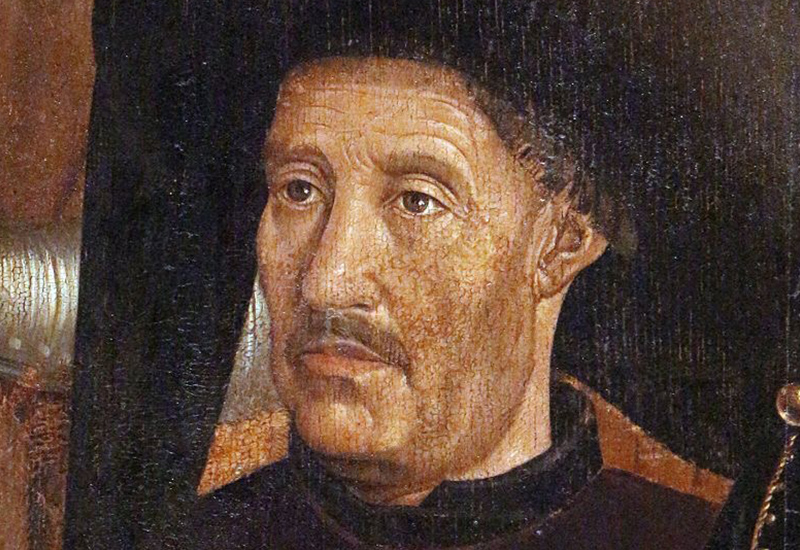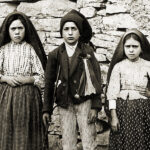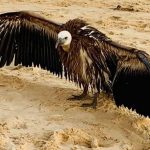In this series, we investigate the historical figures who have shaped Portugal.
Henry the Navigator 1394–1460 has a heroic status in Portugal’s history. For a long time, the ‘Sage of Sagres’ was seen as the inspiration for Portugal’s age of discovery and the genius who discovered the secrets of navigation and opened the globe for exploration. But the truth is far more complicated, and Henry has a leger comprising a few notable successes offset by a number of profound failures.
Born in 1394, he was the grandson of John of Gaunt, and cousin to England’s Henry V. Of all his father’s (King John I) sons, he was the most spirited and ambitious. He was raised to believe in the need to crusade against Islam and in the necessity to earn his place at court through acts of valour.
The foundation stone of his reputation was the 1415 seizure of Ceuta on the Moroccan coast, opposite Gibraltar. This was one of Islam’s key trading ports, and its seizure in just one day by a vast army led by Henry astonished the Portuguese with its audacity. The triumph seemed to set Henry’s mind on Islamic conquest for the rest of his life. As it turned out, Ceuta was a symbolic victory only. The port lost strength under Portuguese control and many came to think the capture had been a misguided concept in the first place.
Henry cashed in on his Ceuta reputation. The king, whatever his misgivings, ended up backing his son’s further daring initiatives. The first of these was a brilliant success. Henry refused to accept the established belief that the navigable oceans ended at Cape Bojador, on the west coast of Africa. Legend had it that no ship could go further. Henry sent a series of captains south from Lagos in missions to prove otherwise and finally, in 1434, Gill Eanes pushed further than any and rounded the notorious cape, and safely returned. (It is now thought that he misidentified the landmark and was in fact about 200 km short!) Henry again enhanced his reputation. His captains had mastered the trade winds, and developed a new vessel – the caravel – which was to play a vital role in Portugal’s prosperity.
Henry’s second set of enterprises focused on discovery along the Atlantic coast of Africa. Here he had mixed success. His captains discovered and took possession of Madeira and the Cape Verde islands, but all attempts to take over the Canary Islands from Castilian control failed. Voyages along the African coast continued throughout the rest of his life, ultimately extending over 2,000 km of coastline beyond Cape Bojador.
At the same time as driving forward his African exploration, Henry continued with his zealous drive to reconquer Islamic territory, notably Morocco. This led to one of his greatest failures – the abortive attempt in 1437 to seize Tangier. The raid was an utter failure. Henry was able to escape from the fiasco only on the basis of a deal with city’s rulers: that he left his younger brother Fernando, who had been his second in command, as hostage, to be released once Ceuta was returned to Moorish control. Henry, however, had no intention of ceding the port – and his reputation – and so his brother languished in Tangier, dying there a few years later.
Henry sought to avenge his Tangier defeat. He hatched schemes to seize Gibraltar but was blocked by the king. He tried to join a mission inspired by the pope in 1456 to seize back control of Constantinople from the Turks, but it came to nothing.
By far the most controversial aspect of Henry’s life is that he started Portugal’s involvement in the African slave trade. All his crusading and exploring had to be paid for. He had money from the Knights of Christ, and from trading monopolies endorsed by the pope, and some gold found on African riverbeds. But in slaves, he saw a source of wealth, thinly concealed under a veneer of bringing heathens to the Christian faith. The first slaves arrived in Lagos in 1444, causing a sensation in the town. Henry supervised the unloading in person and took his own quota of the sorry cargo. Thousands more were to follow before anyone began questioning whether this practice was in any way ethical.
For the deeply ascetic Henry, this visionary mix of exploration, conquest and crusading had unstoppable momentum, whether it was meeting with triumph or disaster. To most of his contemporaries, he showed heroic qualities, underpinned by his legendary efforts to ensure his reputation was cast in the best possible light. From the vantage point of history, he was maybe more a reckless, self-obsessed opportunist: a master puppeteer of adventure, rarely going to sea himself, but issuing orders from his promontory rock at Sagres or his villa in Raposeira, sending others out to take all the risks involved in shaping Portugal’s future in the way his obsessed mind saw it.
Next month: King Manuel I
Main Image: Henry the Navigator c.1470 © Nuno Gonçalves, Public domain, via Wikimedia Commons













